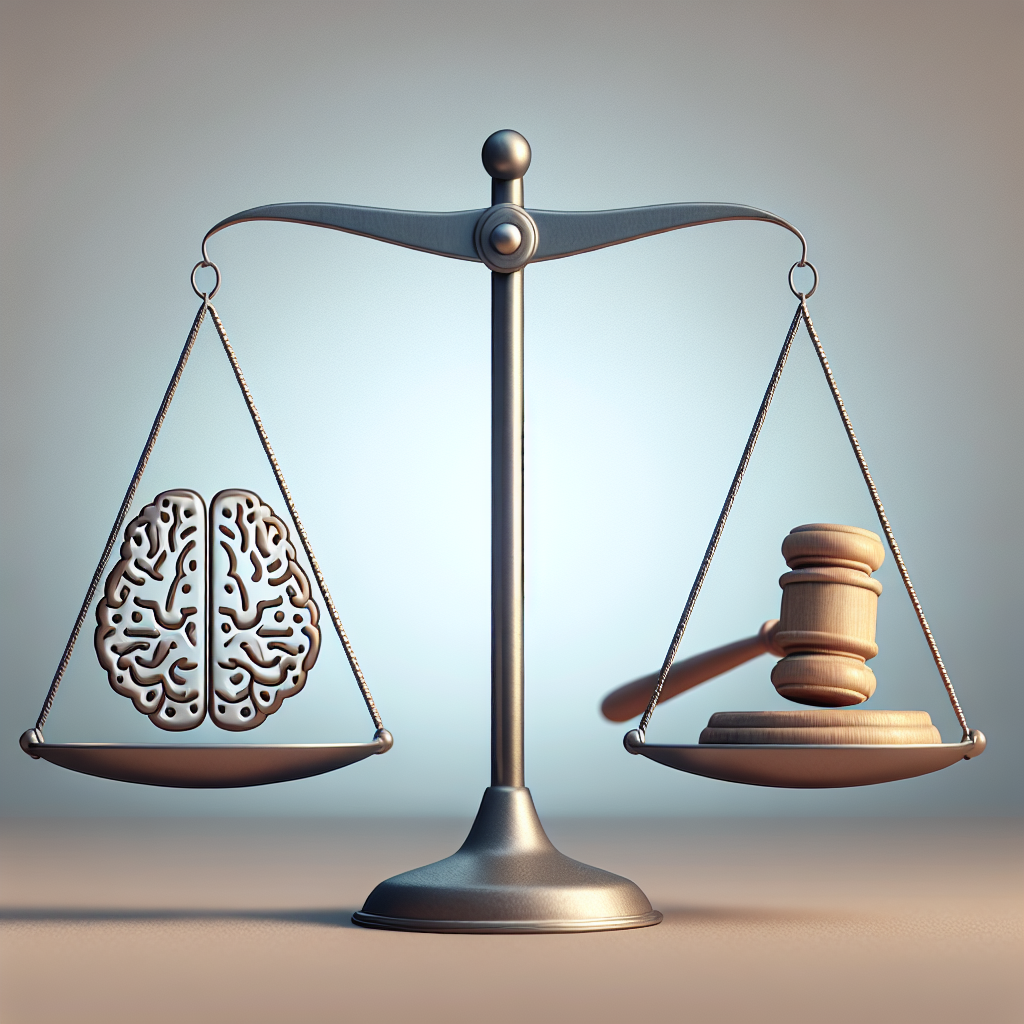
Introduction
Imagine a world where the understanding of mental health could reshape our criminal justice system. With over one in five adults experiencing a mental illness in a given year, it’s crucial to explore the intricate relationship between mental illness and criminal behavior. The question at the forefront of this discussion is: Is There a Connection? Analyzing the Role of Mental Illness in Criminal Cases allows us to unpack this complex issue. Understanding how mental health impacts criminal behavior not only enriches our appreciation of justice but also highlights the necessity for reform in how we address mental health in legal contexts.
Understanding Mental Illness and its Impact on Behavior
What is Mental Illness?
Mental illness encompasses a wide range of mental health conditions that affect mood, thinking, and behavior. Conditions like depression, anxiety, bipolar disorder, and schizophrenia can significantly alter an individual’s perception of reality. This complexity raises the question: how do these conditions intersect with criminal behavior?
Types of Mental Illness Common in Criminal Cases
It’s essential to categorize mental illnesses that frequently arise in criminal cases. These can include:
- Psychotic Disorders: Such as schizophrenia, where individuals may experience delusions or hallucinations.
- Mood Disorders: Such as bipolar disorder or severe depression, impacting decision-making and impulse control.
- Personality Disorders: Including antisocial personality disorder, often associated with high rates of criminality.
Understanding these categories provides a framework for analyzing their roles in criminal acts.
The Prevalence of Mental Illness in the Criminal Justice System
Research indicates that a significant percentage of individuals in the criminal justice system suffer from a mental health issue. According to a report by the Bureau of Justice Statistics, about 46% of incarcerated individuals have a history of mental health disorders. This statistic begs the question: Is there a connection between mental illness and criminality?
Case Studies: Real-World Applications
Case Study 1: John Hinckley Jr.
John Hinckley Jr.’s attempted assassination of President Ronald Reagan in 1981 raised questions about the intersection of mental illness and legal culpability. Hinckley was diagnosed with obsessive personality disorder and delusional disorder, yet he was found not guilty by reason of insanity. This case fundamentally shifted public perception, emphasizing how mental illness can influence criminal behavior and legal outcomes.
Relevance Analysis: Hinckley Jr.’s case illustrates a critical juncture where the legal system recognized mental illness as a mitigating factor in criminal behavior. The ruling instigated discussions on the balance between mental health understanding and public safety.
Case Study 2: Andrea Yates
In 2001, Andrea Yates drowned her five children in a bathtub. Struggling with severe postpartum depression and psychosis, Yates was initially convicted of murder but was later found not guilty by reason of insanity.
Relevance Analysis: Yates’ tragic case highlights the fine line between mental illness and criminal intent. Discussions emerged about how the criminal justice system can better accommodate those struggling with severe mental health issues, especially when familial responsibilities are involved.
Analyzing the Role of Mental Illness in Legal Frameworks
Insanity Defense: A Legal Perspective
The insanity defense is a pivotal aspect of criminal law involving mental illness. It asserts that a defendant cannot be held fully responsible for their actions due to severe mental impairment. This raises questions about justice, accountability, and the treatment of mentally ill individuals.
Competency to Stand Trial
An essential extension of the discussion about mental illness in criminal cases is competency to stand trial. Defendants must demonstrate an ability to understand the charges against them and participate in their defense. Studies indicate that many defendants deemed incompetent are often those with severe mental illnesses.
Recidivism Rates and Mental Health
Research indicates that individuals with untreated mental illness are more likely to re-offend once released. The rates of recidivism can be linked to inadequate mental health treatment during incarceration. Therefore, a critical component in addressing crime associated with mental illness lies in effective treatment and rehabilitation.
Policy Implications and Reforms
The Need for Comprehensive Mental Health Care
To effectively manage the intersection of mental illness and criminal behavior, mental health care must become more robust within the criminal justice system. Integrated approaches, such as mental health courts, have emerged, offering alternative sentencing and treatment options for individuals with mental health issues.
Community-based Programs and Prevention
Developing community-based resources aimed at early intervention and prevention is essential. These programs focus on providing support before potential escalating behaviors lead to criminal acts. By funding resources for mental health support, jurisdictions can potentially reduce crime rates linked to mental illness.
Conclusion
The inquiry into whether there is a connection between mental illness and criminal behavior progresses with every case studied. By acknowledging the influence of mental health on an individual’s actions and decisions, we enrich our understanding of justice. Continued advocacy for mental health reform within the criminal justice system can lead to a more compassionate, effective approach in handling offenders with mental health issues.
Actionable Insights
Advocate for Policy Changes: Support initiatives that prioritize mental health resources within the justice system.
Engage in Dialogue: Discuss mental health openly in your community to break down stigma and increase awareness.
- Promote Education: Help educate others on recognizing signs of mental illness and the importance of seeking treatment.
FAQs
1. How does mental illness impact criminal responsibility?
Mental illness can impair an individual’s ability to understand their actions and the consequences. The insanity defense allows for consideration of these issues in legal contexts.
2. Are all individuals with mental illness dangerous?
No, the majority of individuals with mental illness are not dangerous. Most people with mental health issues are non-violent and face stigma that contributes to misunderstanding.
3. What is the role of mental health courts?
Mental health courts specialize in cases involving defendants with mental health conditions, offering treatment instead of prison time, focusing on rehabilitation.
4. Can early intervention prevent criminal behavior?
Yes, early intervention with mental health support can help prevent individuals from engaging in criminal acts, leading to improved community safety.
5. What resources are available for individuals with mental illness?
Resources include counseling services, support groups, and community-based organizations specializing in mental health care.
The question remains: Is There a Connection? Analyzing the Role of Mental Illness in Criminal Cases not only enhances our understanding but also calls for deeper awareness and actionable change. It is through understanding and compassion that we can better support individuals in our society.

















